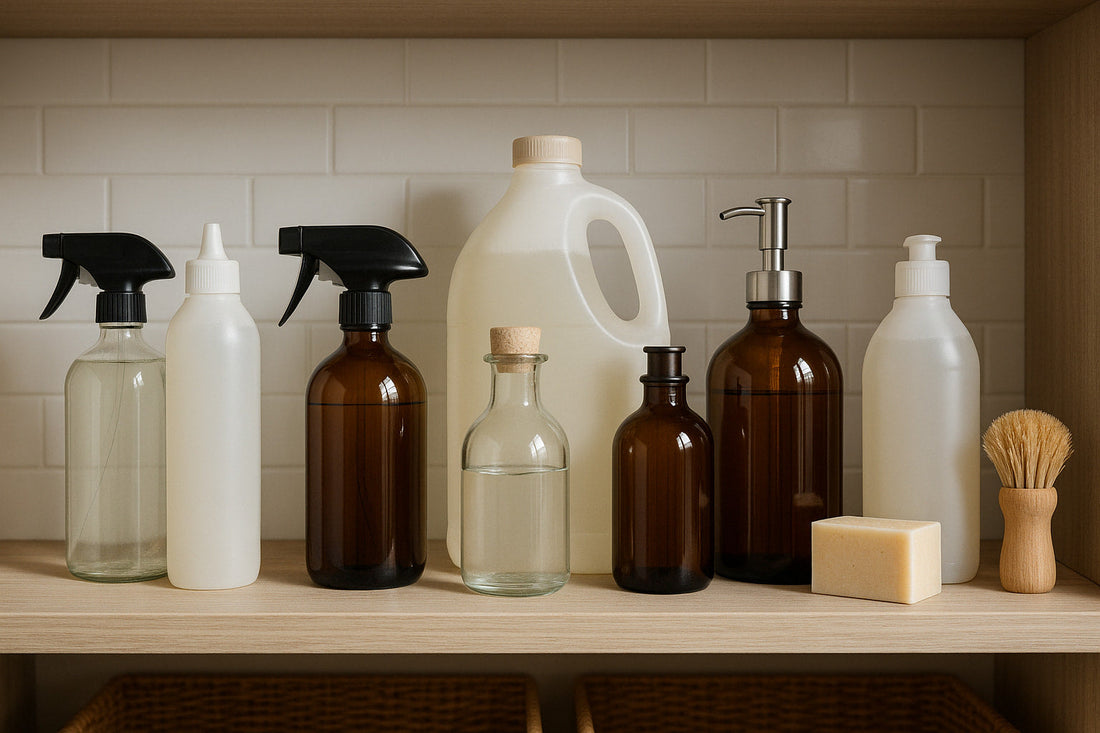
Eco Friendly Cleaning Products: Are They Worth It?
It’s 7 AM and morning chaos is in full swing — a half-packed lunchbox, a sticky bench, and a toddler in no rush to get ready. Sound familiar? In the frenzy, the sprays and wipes we choose impact the air our kids breathe and the surfaces they eat from.

We all want the best for our families, but labels can mislead. Let’s unpack eco-friendly cleaning — its benefits, drawbacks, and what actually matters.
What Hides in Mainstream Cleaning Products?
So you’re at Coles or Woolies. You head to the detergent aisle and get hit with that pungent smell we all know.
This is where many fall into the trap — mistaking the strong scent for true cleanliness. But this trap is no accident. Big companies orchestrate this deception to mislead us with their products.

Grocery store cleaners promise sparkling results — “Bam! Dirt gone!” But gone where, exactly? Chemicals like phosphates, ammonia, and chlorine don’t dissipate into thin air. They rinse down drains into rivers and oceans.
Not sure what these toxic chemicals are? No worries. What matters is these chemicals pollute waterways, harm marine life, and end up in our seafood.
Eco friendly alternatives, in contrast, are usually biodegradable. They decompose instead of lingering in the environment. And since they’re plant-based, they’re far gentler on the ecosystems our drains feed into.

The EWG, an environmental research group, shared findings. About 53% of mainstream cleaners have ingredients that irritate or harm lungs.
So next time you’re shopping, check the label. Products that carry these certifications are usually a safer bet:
- GECA - Good Environmental Choice Australia
- B Corporation Certification
- ACO - Australian Certified Organic
Because Your Home Shouldn’t Make You Sick
Your kids crawl on just-cleaned floors. Toddlers touch everything, and pets lick up whatever catches their eye. These moments happen in a flash — and they’re exactly why your cleaning products matter.

Many cleaners have harsh chemicals that irritate skin, cause sneezing, or affect breathing. Eco-friendly options often avoid these, making much them safer.
Tip: Avoid vague "fragrance" or "perfume" labels. Opt for fragrance-free if you can.
Eco Cleaners: Do They Work or Just Cost More?
Eco-friendly cleaners are gaining steam as people realise they clean as well as the rest.

Aloe vera turns up a lot in these cleaners. It’s more than a sunburn fix — it earns its spot with natural antibacterial power.
Going green can cost more upfront, but refills, simple packaging, and less waste even it out over time.
Some brands make saving easy with subscriptions or bulk deals. Others go multipurpose, meaning less clutter for the same results.

Fewer doctor visits and meds over time mean real savings, which is a win that goes beyond cleaning.
The Final Verdict
So, are eco friendly cleaning products worth investing in? Well, bleach cuts costs. Natural cleaners cut the crap. Make of that what you will.
The best part about switching — beyond peace of mind — is how easy they are to use. Even tougher jobs like cleaning the filter on a cooker hood end up feeling simpler and safer.
To take your learnings a step further, here’s how to clean silver jewellery in a safe, non-toxic way.

